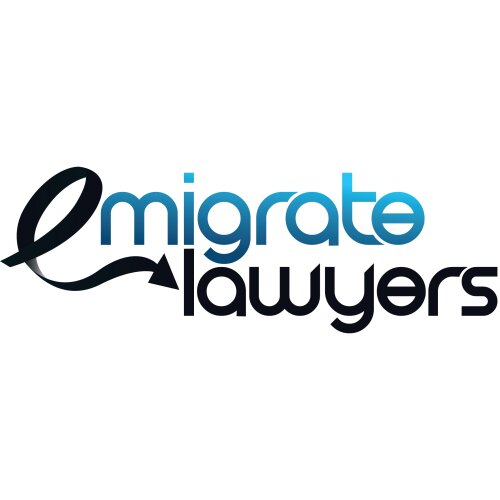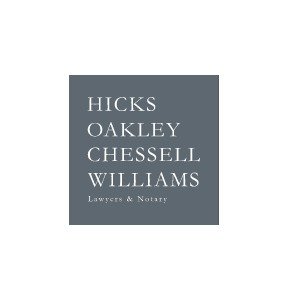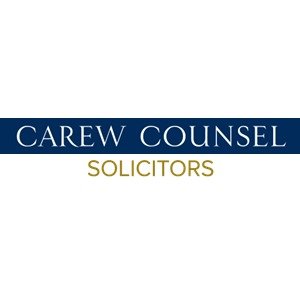Best Private Client Lawyers in Melbourne
Share your needs with us, get contacted by law firms.
Free. Takes 2 min.
List of the best lawyers in Melbourne, Australia
About Private Client Law in Melbourne, Australia
Private Client law refers to a broad range of legal services tailored to individuals, families, and business owners regarding their personal wealth, assets, and future planning. In Melbourne, Australia, Private Client lawyers typically assist with matters such as wills and estate planning, probate, powers of attorney, trusts, superannuation, tax planning, and elder law. The focus is on safeguarding your assets, ensuring your wishes are respected, and protecting your loved ones’ interests both now and in the future.
Why You May Need a Lawyer
There are numerous situations where you might need legal advice from a Private Client lawyer in Melbourne. Some common reasons include:
- Drafting or updating a will to ensure your assets are distributed according to your wishes
- Establishing powers of attorney for financial, medical, or personal matters
- Succession planning for business owners, including family trusts or buy-sell agreements
- Applying for probate or administering an estate after a loved one’s death
- Setting up trusts for minors, disabled beneficiaries, or charitable purposes
- Structuring assets to minimize tax liabilities for you and your beneficiaries
- Addressing complex family situations, such as blended families or estrangements
- Assisting with disputes over wills or estates, which can be highly sensitive and emotional
A lawyer can help you understand your options, avoid common pitfalls, and ensure compliance with Victorian law.
Local Laws Overview
In Melbourne, Private Client legal matters are governed by state and federal legislation. Important aspects include:
- Wills and Estates: Governed by the Wills Act 1997 (VIC) and the Administration and Probate Act 1958 (VIC). These laws specify how wills should be made, revoked, or contested, and how estates are managed.
- Probate: Probate is the legal process of proving and registering a will with the Supreme Court of Victoria. If there is no valid will, the deceased is considered “intestate” and the estate is divided according to statutory rules.
- Powers of Attorney: Covered by the Powers of Attorney Act 2014 (VIC) and the Medical Treatment Planning and Decisions Act 2016 (VIC). These allow you to give someone authority to act on your behalf in specified situations.
- Superannuation: While superannuation is largely regulated federally, local considerations often emerge when nominating beneficiaries or dealing with disputes.
- Contesting a Will: Family Provision Claims may be made if a person believes the deceased did not make adequate provision for them. Strict time limits and eligibility rules apply.
- Trusts: Trust law is mainly influenced by common law, with the Trustee Act 1958 (VIC) providing key principles about the creation and running of trusts.
Understanding how Victorian and federal laws apply is crucial to ensuring your affairs are properly managed and your intentions honoured.
Frequently Asked Questions
What is a Private Client lawyer?
A Private Client lawyer advises individuals and families on personal legal matters, such as wills, estates, trusts, powers of attorney, and succession planning.
Is it essential to have a will?
While it is not legally required, having a valid will ensures your assets are distributed according to your wishes and simplifies the process for your loved ones after your death.
What happens if someone dies without a will in Victoria?
If a person dies “intestate,” their estate is distributed according to a fixed legal formula under the Administration and Probate Act 1958 (VIC). This may not align with the deceased’s wishes.
Can I challenge a will in Melbourne?
Yes, eligible people such as spouses, children, or dependants can contest a will if they believe they have not been properly provided for. There are strict legal criteria and timeframes involved.
What is probate and when is it needed?
Probate is a court process which proves a will is valid and authorises the executor to administer the estate. It is generally required when the estate includes significant assets, especially real estate.
How do I make a power of attorney?
You must complete the correct legal forms, specifying a person to act on your behalf. The forms must be properly signed and witnessed. Legal advice is recommended to ensure your wishes are clear and legally binding.
What is the role of an executor?
An executor is responsible for administering the deceased’s estate. This includes collecting assets, paying debts, and distributing inheritances according to the will or the law if there is no will.
What is a trust and when should I consider one?
A trust is a legal arrangement where a trustee holds and manages assets for the benefit of others. Trusts can help with tax planning, asset protection, or caring for vulnerable beneficiaries.
Can superannuation be included in a will?
Superannuation usually sits outside the will. However, you can nominate beneficiaries with your super fund (binding or non-binding nominations) to direct how your superannuation is distributed.
How often should I review my will or estate plan?
It is wise to review your will every few years or when significant life events occur, such as marriage, divorce, births, deaths, or major financial changes.
Additional Resources
If you need further information or support, consider these helpful resources:
- Victorian Legal Aid: Offers free legal information and assistance, including on wills and estates.
- Supreme Court of Victoria - Probate Office: Manages applications for probate and administration of estates.
- Law Institute of Victoria: Provides a “Find a Lawyer” service and information on legal topics and choosing a lawyer.
- State Trustees Victoria: Offers will-writing, power of attorney, and estate administration services.
- Public Advocate Victoria: Provides advice and representation for issues relating to powers of attorney and guardianship.
Next Steps
If you are considering legal action or advice regarding a Private Client matter in Melbourne, take these steps:
- Consider your personal circumstances and the goals you want to achieve
- Collect any relevant documents, such as previous wills, trust deeds, and financial statements
- Make a list of key questions or concerns you would like to discuss with a lawyer
- Seek out a reputable Private Client lawyer, preferably one with experience in Victorian law
- Arrange an initial consultation to discuss your case and understand your options
- If cost is a concern, ask about fee structures, payment options, and any eligibility for free or subsidised help
- Take notes during meetings and ensure you understand any advice or documents before signing
Private Client legal matters can be complex and emotional. Professional legal advice can be invaluable in protecting your interests and ensuring peace of mind for you and your loved ones.
Lawzana helps you find the best lawyers and law firms in Melbourne through a curated and pre-screened list of qualified legal professionals. Our platform offers rankings and detailed profiles of attorneys and law firms, allowing you to compare based on practice areas, including Private Client, experience, and client feedback.
Each profile includes a description of the firm's areas of practice, client reviews, team members and partners, year of establishment, spoken languages, office locations, contact information, social media presence, and any published articles or resources. Most firms on our platform speak English and are experienced in both local and international legal matters.
Get a quote from top-rated law firms in Melbourne, Australia — quickly, securely, and without unnecessary hassle.
Disclaimer:
The information provided on this page is for general informational purposes only and does not constitute legal advice. While we strive to ensure the accuracy and relevance of the content, legal information may change over time, and interpretations of the law can vary. You should always consult with a qualified legal professional for advice specific to your situation.
We disclaim all liability for actions taken or not taken based on the content of this page. If you believe any information is incorrect or outdated, please contact us, and we will review and update it where appropriate.
Browse private client law firms by service in Melbourne, Australia
Melbourne, Australia Attorneys in related practice areas.

















